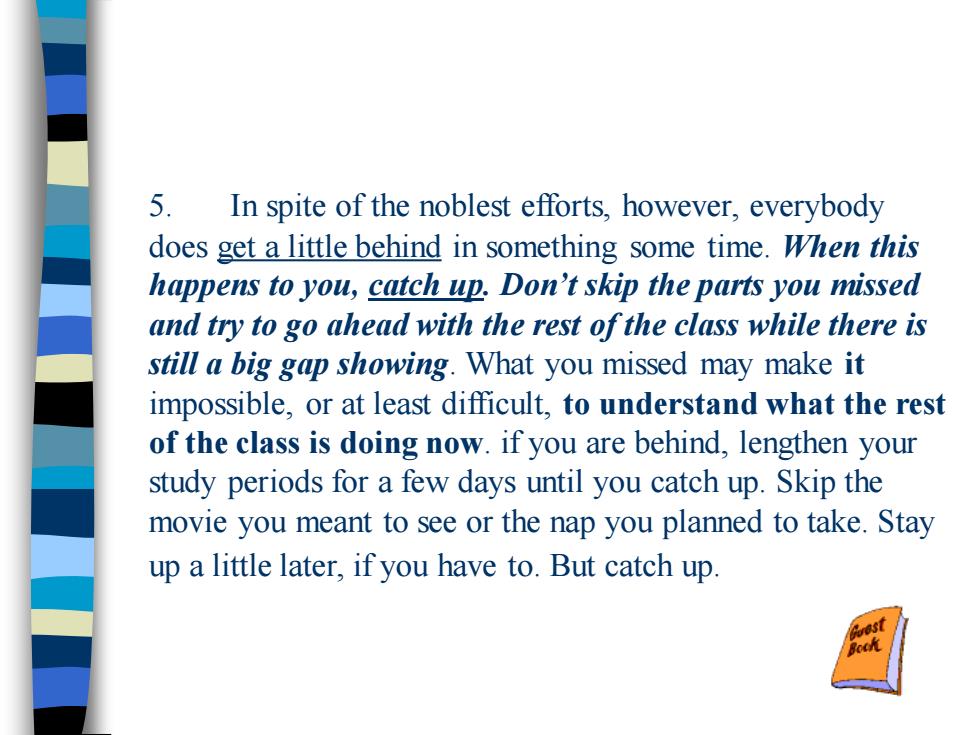
5.In spite of the noblest efforts,however,everybody does get a little behind in something some time.When this happens to you,catch up.Don't skip the parts you missed and try to go ahead with the rest of the class while there is still a big gap showing.What you missed may make it impossible,or at least difficult,to understand what the rest of the class is doing now.if you are behind,lengthen your study periods for a few days until you catch up.Skip the movie you meant to see or the nap you planned to take.Stay up a little later,if you have to.But catch up
5. In spite of the noblest efforts, however, everybody does get a little behind in something some time. When this happens to you, catch up. Don’t skip the parts you missed and try to go ahead with the rest of the class while there is still a big gap showing. What you missed may make it impossible, or at least difficult, to understand what the rest of the class is doing now. if you are behind, lengthen your study periods for a few days until you catch up. Skip the movie you meant to see or the nap you planned to take. Stay up a little later, if you have to. But catch up
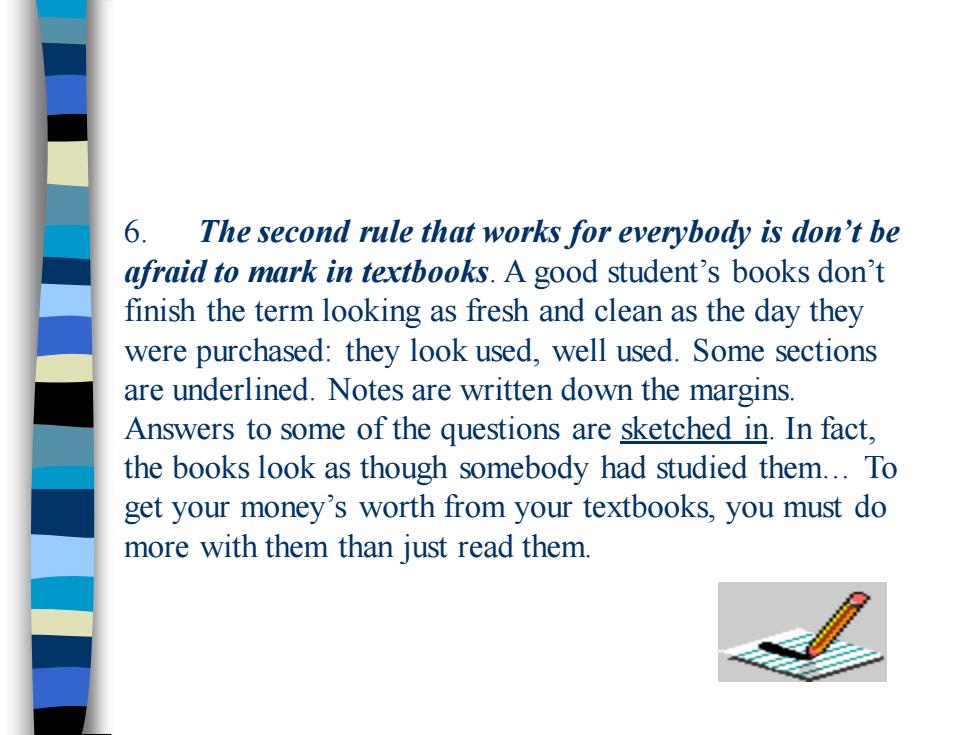
6. The second rule that works for everybody is don't be afraid to mark in textbooks.A good student's books don't finish the term looking as fresh and clean as the day they were purchased:they look used,well used.Some sections are underlined.Notes are written down the margins. Answers to some of the questions are sketched in.In fact, the books look as though somebody had studied them...To get your money's worth from your textbooks,you must do more with them than just read them
6. The second rule that works for everybody is don’t be afraid to mark in textbooks. A good student’s books don’t finish the term looking as fresh and clean as the day they were purchased: they look used, well used. Some sections are underlined. Notes are written down the margins. Answers to some of the questions are sketched in. In fact, the books look as though somebody had studied them… To get your money’s worth from your textbooks, you must do more with them than just read them
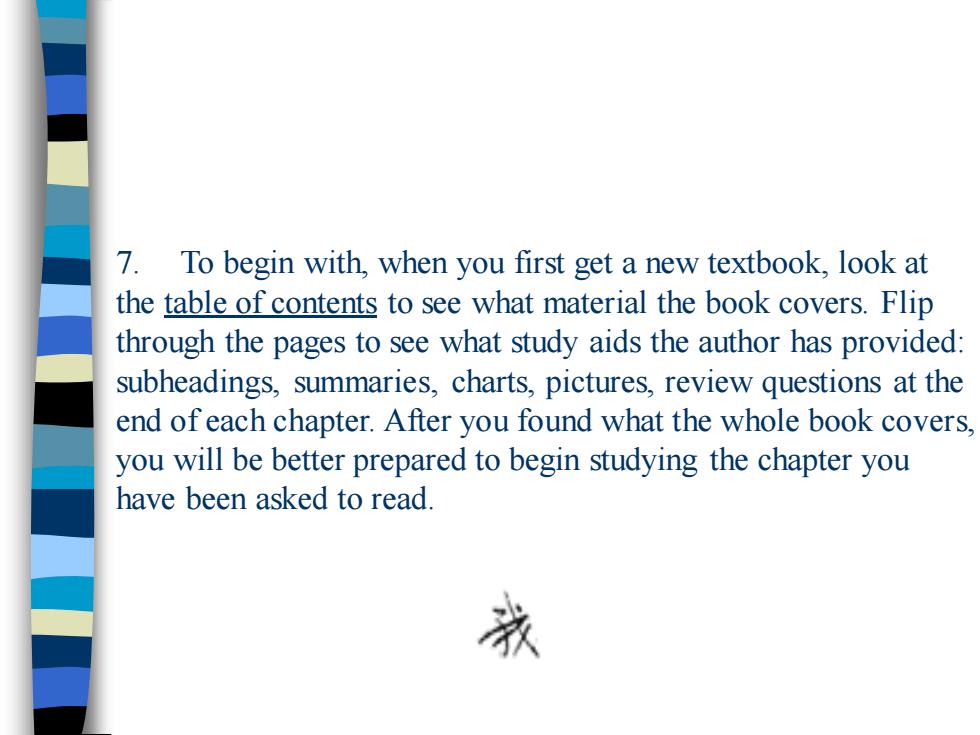
7.To begin with,when you first get a new textbook,look at the table of contents to see what material the book covers.Flip through the pages to see what study aids the author has provided: subheadings,summaries,charts,pictures,review questions at the end of each chapter.After you found what the whole book covers, you will be better prepared to begin studying the chapter you have been asked to read. 我
7. To begin with, when you first get a new textbook, look at the table of contents to see what material the book covers. Flip through the pages to see what study aids the author has provided: subheadings, summaries, charts, pictures, review questions at the end of each chapter. After you found what the whole book covers, you will be better prepared to begin studying the chapter you have been asked to read
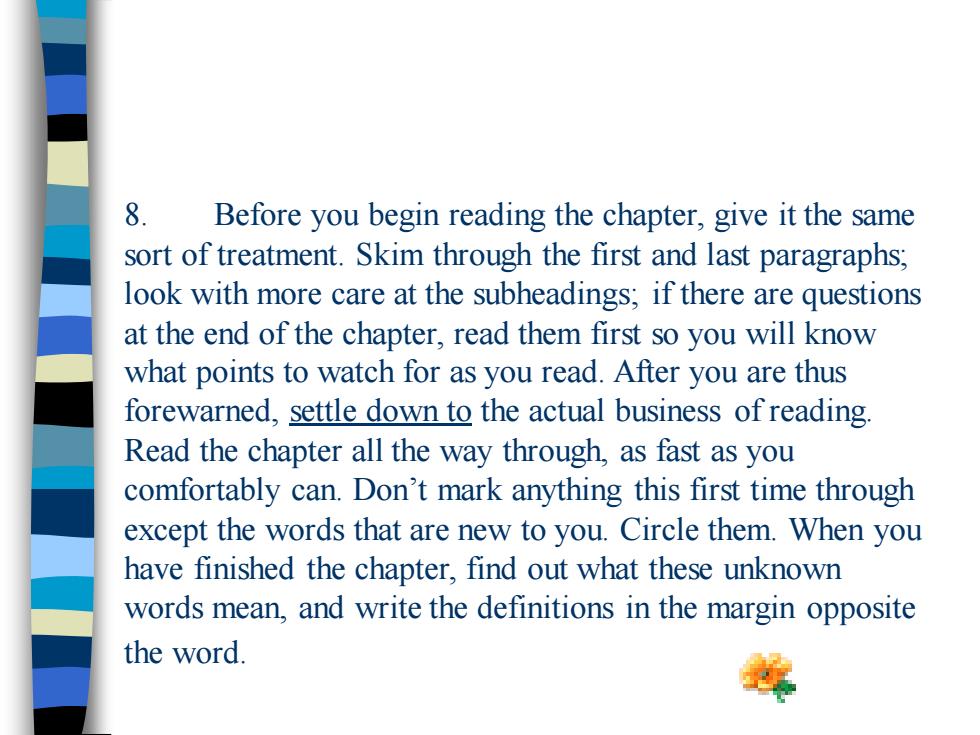
8 Before you begin reading the chapter,give it the same sort of treatment.Skim through the first and last paragraphs; look with more care at the subheadings;if there are questions at the end of the chapter,read them first so you will know what points to watch for as you read.After you are thus forewarned,settle down to the actual business of reading Read the chapter all the way through,as fast as you comfortably can.Don't mark anything this first time through except the words that are new to you.Circle them.When you have finished the chapter,find out what these unknown words mean,and write the definitions in the margin opposite the word
8. Before you begin reading the chapter, give it the same sort of treatment. Skim through the first and last paragraphs; look with more care at the subheadings; if there are questions at the end of the chapter, read them first so you will know what points to watch for as you read. After you are thus forewarned, settle down to the actual business of reading. Read the chapter all the way through, as fast as you comfortably can. Don’t mark anything this first time through except the words that are new to you. Circle them. When you have finished the chapter, find out what these unknown words mean, and write the definitions in the margin opposite the word
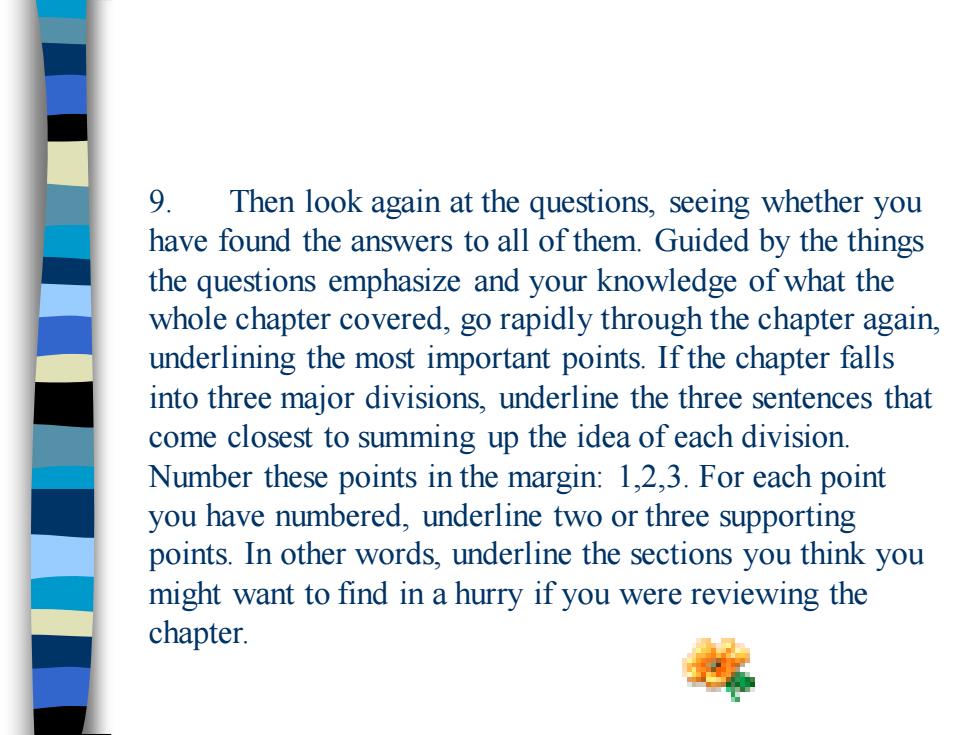
9.Then look again at the questions,seeing whether you have found the answers to all of them.Guided by the things the questions emphasize and your knowledge of what the whole chapter covered,go rapidly through the chapter again, underlining the most important points.If the chapter falls into three major divisions,underline the three sentences that come closest to summing up the idea of each division. Number these points in the margin:1,2,3.For each point you have numbered,underline two or three supporting points.In other words,underline the sections you think you might want to find in a hurry if you were reviewing the chapter
9. Then look again at the questions, seeing whether you have found the answers to all of them. Guided by the things the questions emphasize and your knowledge of what the whole chapter covered, go rapidly through the chapter again, underlining the most important points. If the chapter falls into three major divisions, underline the three sentences that come closest to summing up the idea of each division. Number these points in the margin: 1,2,3. For each point you have numbered, underline two or three supporting points. In other words, underline the sections you think you might want to find in a hurry if you were reviewing the chapter